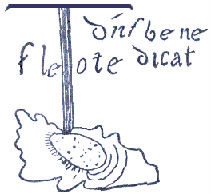Peace! This is the Feast of Saints Peter and Paul. I often reflect on how God brings together unlikely pairings. Simon the Fisherman from Galilee (Peter) and Saul the Pharisee from Tarsus, Roman citizen (Paul) had little in common and would probably not have never met or put up with each other: except for what--or better, who--they had in common: Jesus Christ. What wonders God does with the glue of love and faith! It's the same with Francis and Clare: the rambunctious son of a merchant would never have had much of a chance to talk with, let alone be friends with a noble daughter like Clare (despite what some movies want you to believe). She had no reason to trust him (after all, he and his faction had driven her family out of Assisi when she was very young) and he had no reason to expect anything much from her (as an aristocrat representative of the old order). Yet, they met: in Jesus Christ, in faith and charity. And look what God did for both of them and for the world through t hem.
hem.
 hem.
hem.So, as we walk, let us look for God in the most unexpected places, and especially in the most unexpected persons.
Peter and Paul, Francis and Clare, pray for us!






